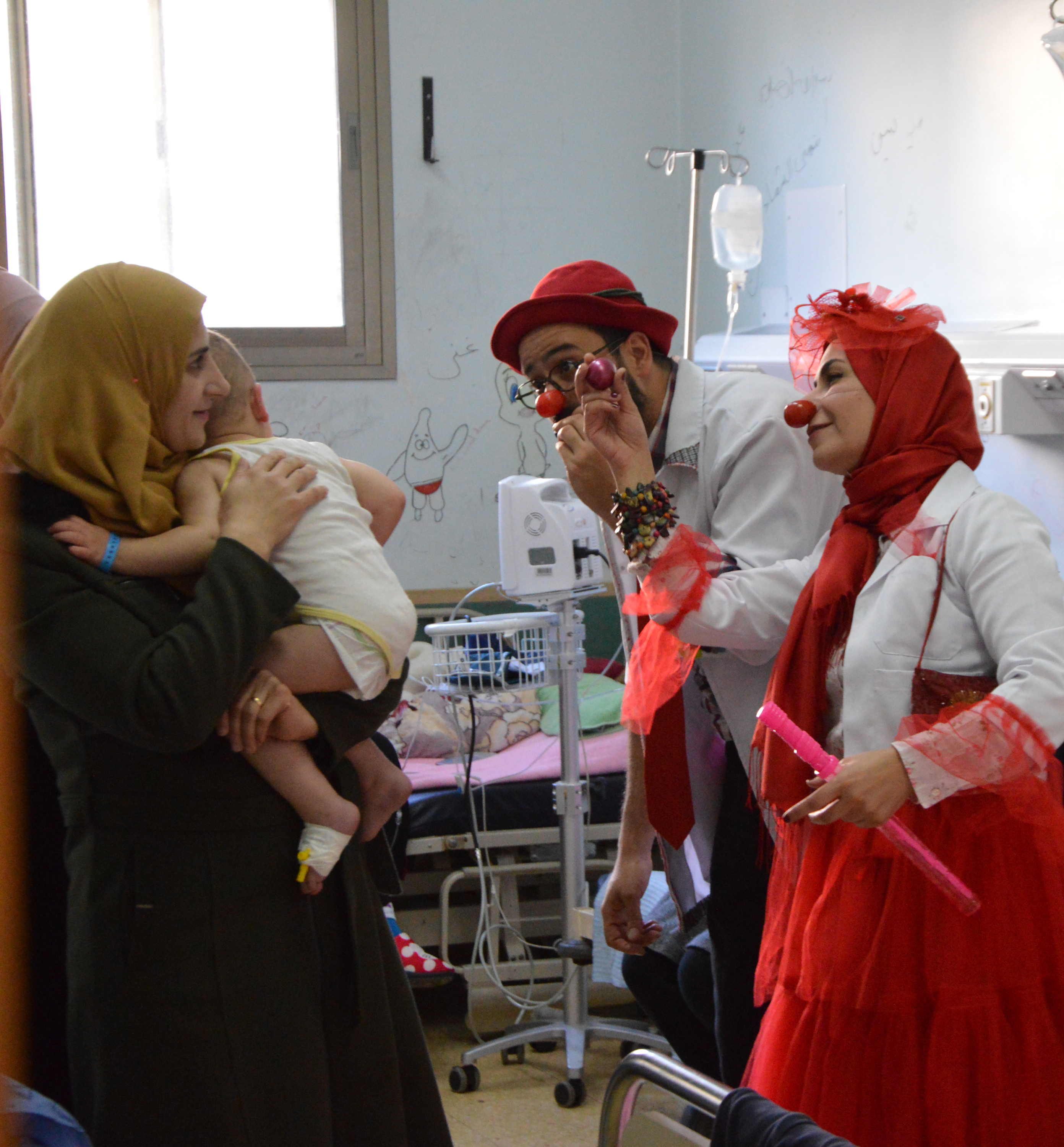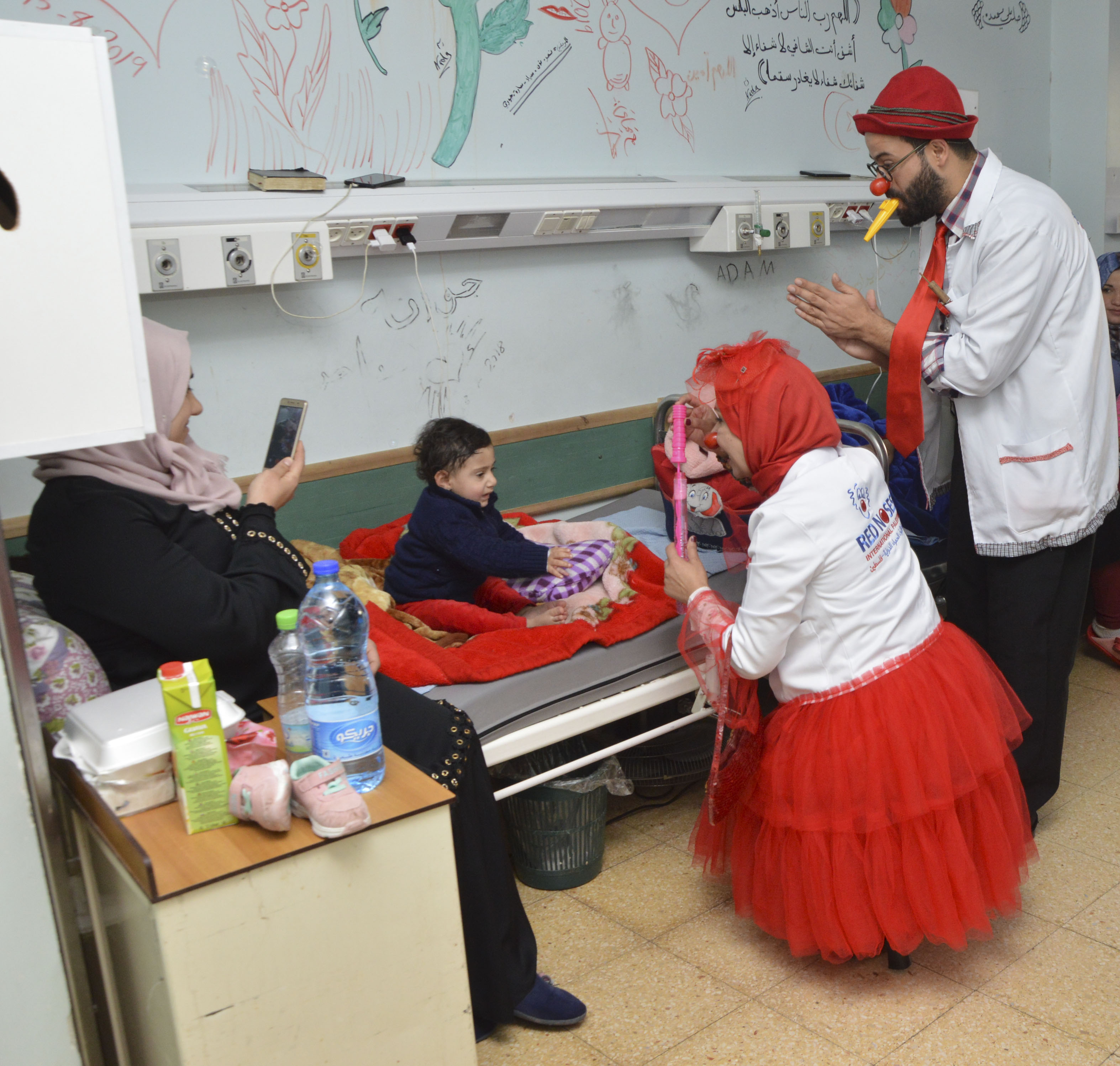Healthcare Clowns improve Health and Well-being according to the latest WHO publication

In November 2019 the World Health Organisation published the largest evidence review to date on how arts can improve health and well-being.
As RED NOSES employs and constantly trains artist to be impactful healthcare clowns (this news article features pictures from this month’s trip of RED NOSES International to Palestine), using many different formats when encountering hospitalized children and elderly, the results of this study was highly interesting for us.
The report refers of course to many creative and art activities like performing arts, literature, cultural activities, craft, etc. but also considers clowns in particular:
- In inpatient settings, they mention that clowns “reduce anxiety, pain and blood pressure, particularly among children but also for their parents” (p. 34).
- And for surgery and invasive procedures (e.g. Intensive Smile scenarios) they say that there are benefits for pre-operative anxiety (p. 36).
- They also discuss a case study of the organization “Doctor Clown” in the Russian Federation (p. 35).
In their concluding discussion, the report identifies three main themes in all these studies:
1: “the overall evidence base shows a robust impact of the arts on both mental and physical health”
2: “the arts hold promise in tackling difficult or complex problems for which there are not currently adequate solutions.” Also “the arts can provide a holistic lens to view conditions that are often treated primarily as physical; this approach fits with current trends in health towards giving parity of esteem to mental health and also towards situating health problems within their social and community context”
3: “the evidence base did not just show efficacy of arts interventions but also showed economic benefits, with some arts interventions showing equivalent or greater cost–effectiveness to possible health interventions.” Also “the aesthetic component of the arts and the ability to tailor them to have relevance to individuals from different cultural backgrounds means that they can be a route to engaging minority or hard-to-reach groups, who can have higher risks of poor health and concomitantly generate higher health-care costs”

We are happy that the WHO recognize the importance of culture in shaping health and well-being throughout the life course, thus acknowledging our precious work with children and the elderly.
Read the full report: http://www.euro.who.int/en/publications/abstracts/what-is-the-evidence-on-the-role-of-the-arts-in-improving-health-and-well-being-a-scoping-review-2019
